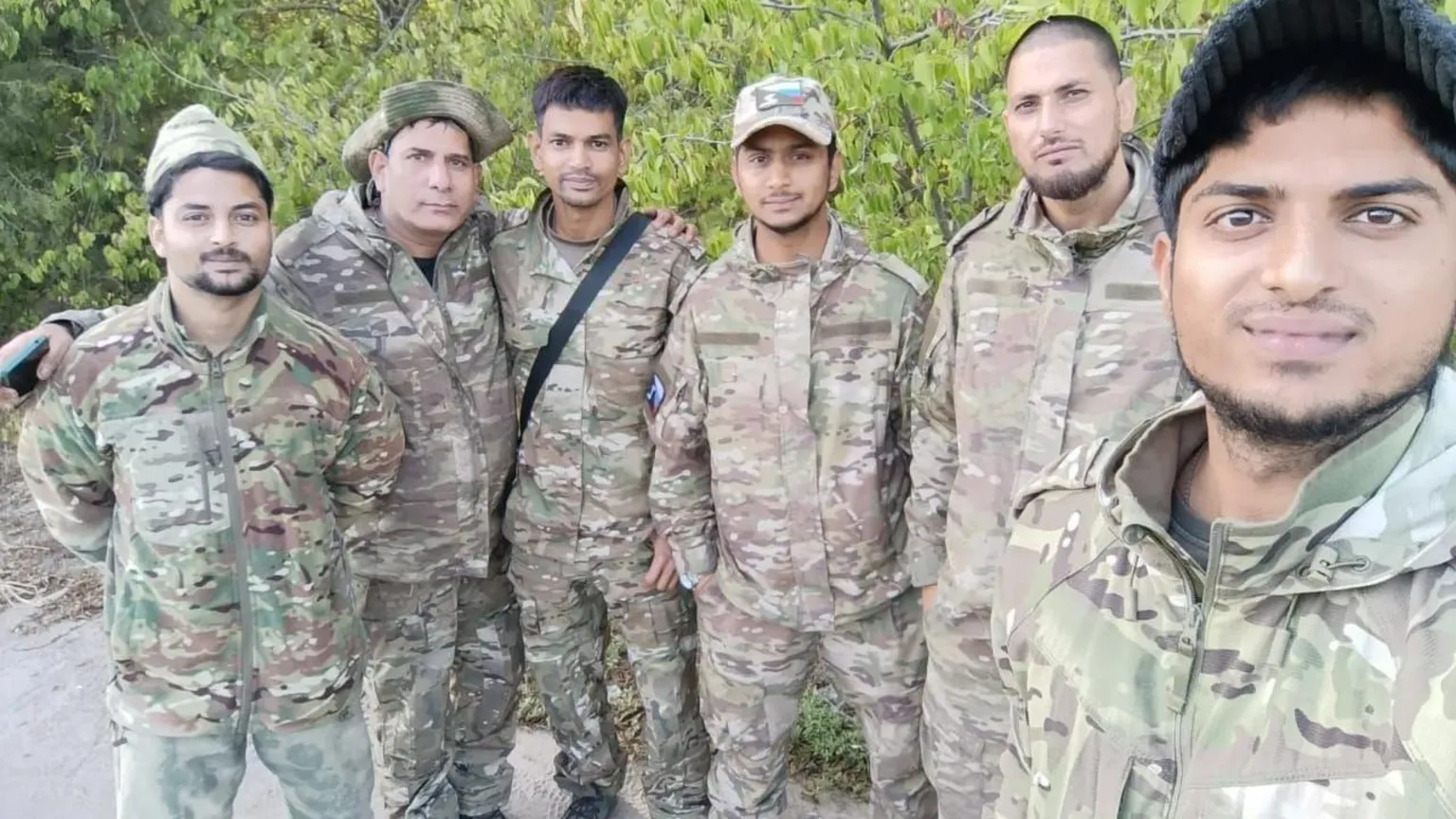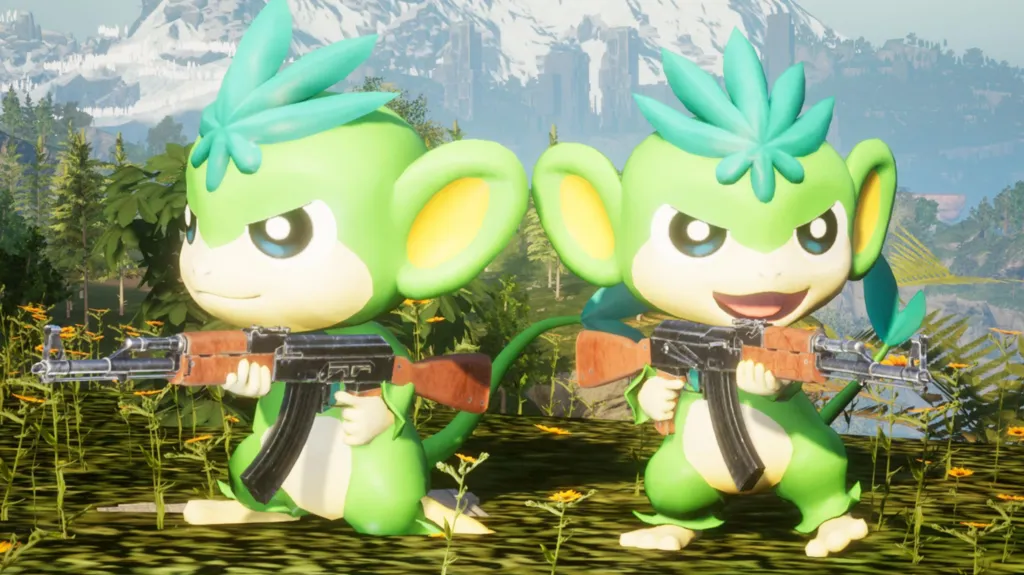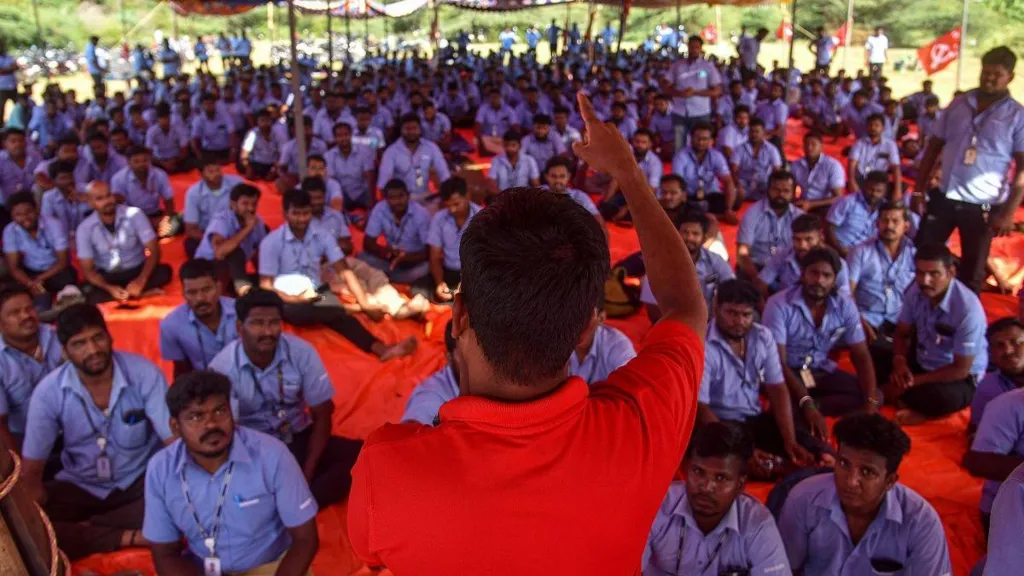Last week, the Indian government announced that Russia had released dozens of the 91 Indians who were deceived into fighting for Russian forces in the war with Ukraine. Several have since returned home, while efforts are ongoing to bring the others back. The BBC’s Neyaz Farooquee spoke with some of the men about their ordeals.
“I am panicking. I don’t know if I’ll make it back safely or in a coffin. Please help me.” This was the message that Urgen Tamang, a former Indian soldier, sent to the BBC from outside a southern Ukrainian city, just days before he was discharged from the frontlines of Russia’s war against Ukraine, which entered its third year in February. Mr. Tamang is one of the 91 Indians forced to fight in the war. Many of them come from impoverished backgrounds and were lured by agents with promises of money and jobs, sometimes as “helpers” for the Russian army. Instead, they were sent to the battlefield.
Many reported being deployed to areas of Ukraine under Russian control, where they had to navigate landmines, drones, missiles, and sniper fire with minimal military training. Nine Indians have died in the conflict so far, and Indian authorities have arrested 19 people in connection with human trafficking. In July, following a visit by Indian Prime Minister Narendra Modi to Moscow, where he raised the issue with President Vladimir Putin, Russia agreed to release all Indians fighting in its army. The two nations have historically maintained strong relations. Since then, 45 have been discharged. Some have safely returned home, while others, like Mr. Tamang, are on their way.
“I can’t believe I’m out of there,” said Sunil Karwa, an electrician from Rajasthan who joined the Russian army in February. Stationed near Bakhmut, an eastern Ukrainian city that has witnessed heavy fighting, he was at the Moscow airport, preparing to board his flight when he spoke to the BBC. Mr. Karwa recounted witnessing death and devastation, a reality that hit him hardest when a man from his neighboring village was shot in combat. “They sent him back to the frontline just 15 days after his injury, and he collapsed in the field. Now he’s paralyzed,” Karwa said. Like him, most of the recruits were blue-collar workers, aged 19 to 35, hired by agents based in India, Dubai, and Russia.
They recalled signing contracts written in Russian, a language they did not understand. Yet, they signed in hopes of better opportunities. “The process was so quick—just a few signatures and photographs, and we were in [the army],” said Mr. Karwa. Raja Pathan enlisted as a last resort in February after being duped by an education consultant into enrolling at a fake college. “When I arrived, I saw recruitment banners for the army. By then, I had invested so much time and money that I decided to join anyway,” he said. The deaths of two friends eventually pushed Mr. Pathan to leave. He was released in August, aided by a sympathetic Russian commander who helped facilitate his exit. Now residing in Moscow, he assists other Indians in escaping from there.
Mohammad Sufyan, from the southern state of Telangana, returned to India on September 12 with five other men. Now safe at home, he carries the trauma of surviving on the frontlines. “There was little rest, and at first, I couldn’t contact my family for 25 days,” he said. The most harrowing moment came in February when his friend, Hemil Mangukiya, an Indian from Gujarat, was killed before his eyes. “He was just 15 meters from me, digging a trench near Krynky [in Kherson], when a missile struck,” Mr. Sufyan recalled. “I personally loaded his body into the truck.” “After seeing my friend’s body, I was too shaken to do anything,” he added. Following his friend’s death, Mr. Sufyan and other stranded Indians released a video pleading for help. The video reached Indian MP Asaduddin Owaisi, who raised the issue with the foreign ministry. The families of the men had also appealed to the Indian government to help bring them home.
“It’s a miracle that I made it back,” said Azad Yusuf Kumar, a resident of Indian-administered Kashmir, who had been part of Mr. Sufyan’s unit. “One moment, you’re digging a trench, and the next, an artillery shell hits, burning everything down. It was just luck whether it hit you or someone else.” In February, Mr. Kumar had told the BBC that he accidentally shot himself during training.
“My commander kept saying, shoot with your right hand, shoot with your left, shoot up, shoot down,” he recounted. “I’d never held a gun before. It was freezing, and while holding the gun with my left hand, I shot myself in the foot.” Now back in Kashmir, he described how his commander accused him of intentionally wounding himself to avoid combat. “But I’m lucky I didn’t have to go. Four men from my unit died in an attack then. I could have been one of them,” he said. While recent discharges have offered relief to many, those still in Russia are growing increasingly desperate as their release is delayed. Mr. Tamang, who joined the Russian army in January, told The Indian Express through his local corporator, Rabi Pradhan, that 13 of the 15 non-Russians in his unit had died. Despite signing his discharge papers in August, he was sent to the frontline at least twice afterward, heightening his fear and distrust in the process. On September 15, he was en route to Moscow but remained unsure if he was truly going home. “I’m out, but I’ll keep sending you my location,” he said. In his last message, he had left Ukraine, hopeful that his journey home would soon continue.




Leave a Reply